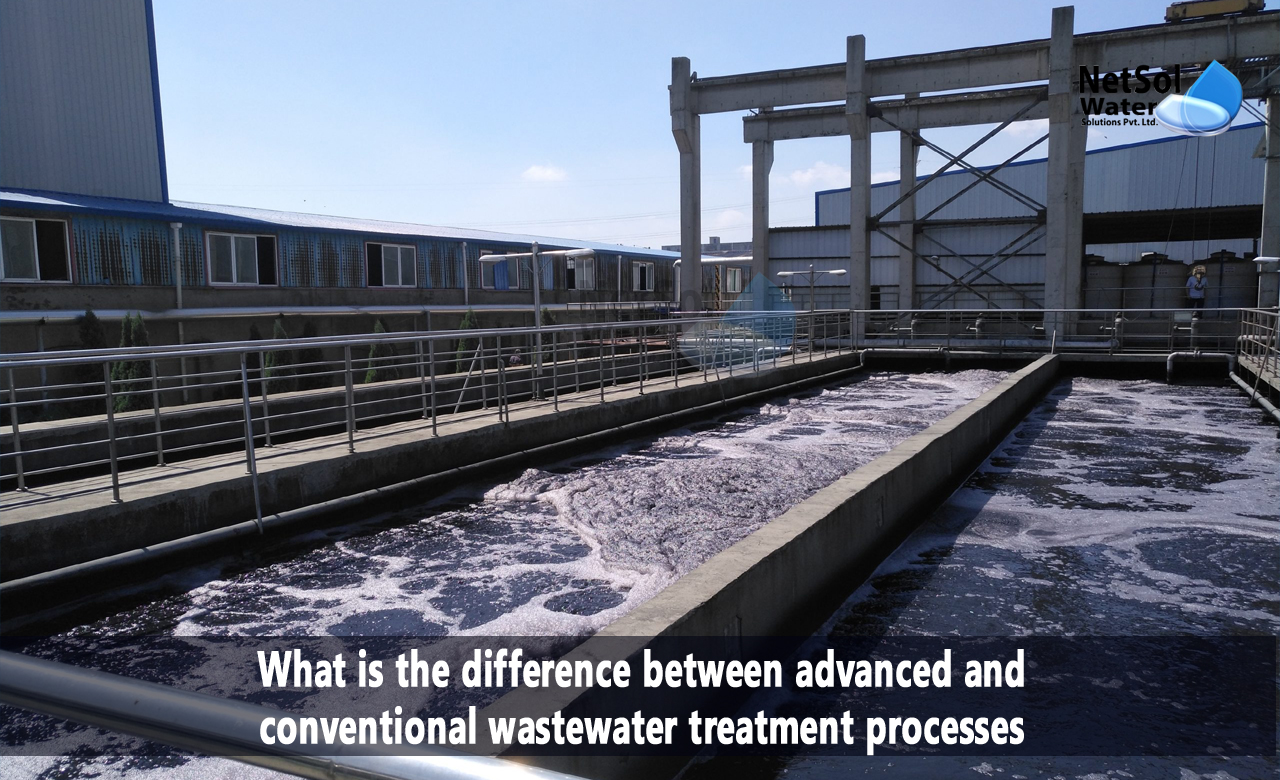Difference between advanced and conventional wastewater treatment
A facility that uses a combination of physical, chemical, and biological processes, to treat effluent and remove pollutants is referred to as a wastewater treatment plant. Its priority is to provide a solution to guarantee that safety precautions and discharge laws are observed.
Let’s understand the difference between advanced and conventional wastewater treatment and various processes!
What is Advanced Wastewater treatment?
It is a method that can lower wastewater contaminants below levels, which can be achieved with traditional secondary or biological treatment.
These cutting-edge treatment options are now of interest to people all around the world, as people, communities, and businesses look for ways to maintain necessary resources accessible and usable. As society works to lessen the effects of the growing population, urbanization, industrialization, and the depletion of potable water, advanced wastewater treatment is required.
What are the processes of Advanced Wastewater Treatment?
Processes for treating advanced wastewater can be biological, physical-chemical, or a combination of the two.
Tertiary treatment
Important tertiary treatment technologies include biologically improved phosphorus removal systems, and intermittently decanted extended aeration lagoon systems for nitrogen removal. Domestic wastewater's nitrogen is organically removed by the extended aeration lagoon system. RO Plants and water softeners are also included.
Physicochemical processes
A sustainability evaluation of modern treatment technology lists the following:
• Ozone treatment
· UV
· MBRs, or membrane bioreactors
· Processes for advanced oxidation (AOP)
• Accelerated oxidation combined with UV
· Nanotechnology
• Variable automatic filtering
In order to recover or save resources, it is possible to further improve wastewater quality through the deployment of various treatment technologies, going beyond the capabilities of traditional technologies.
Effluents from modern wastewater treatment facilities can be recycled directly or through other channels, to expand the supply of household water.
What is conventional wastewater treatment?
Conventional wastewater treatment facilities clean wastewater using a variety of techniques, including:
Coagulation: It is a procedure that eliminates the bulk suspended solids and other pollutants, by adding various chemicals to a reaction tank.
Flocculation: After the coagulation procedure is finished, the water moves into the flocculation chamber, where long-chain polymers are used to slowly mix the particles together, to produce visible and settleable particles.
Sedimentation: The flocculated material and water in the gravity settler pour into the chamber, and circulate outward in a sizable circular device. The water rises to the top and spills to the clarifier's edge during a protracted settling operation. As a result, a sludge blanket of solids might form at the bottom of the clarifier.
The solids are next scraped into a cylindrical tube in the center of the clarifier, where slow mixing takes place. The bottom-pump sludge is pumped into a dewatering process. With the help of filter or belt presses, the entire water content of the sludge is removed, producing a solid cake.
The water from the sludge is squeezed out by placing it on a press and between two belts. After that, the sludge is loaded into a hopper and taken to a landfill.
Filtration: The water overflow is then directed into gravity sand filters as the next step. Usually, the sand is packed securely and inserted in the filter at a depth of two to four feet. The particles are then captured by the feedwater as it moves through.
Disinfection: To kill the water's microorganisms, the water must then be disinfected or chlorinated, after passing through gravity-based sand filters. The filters are cleaned and disinfected by performing this step upstream before filtration.
Distribution: In order to reuse the wastewater in an industrial process, it is typically piped into a holding tank that may be used as needed by the facility.
What do we offer?
To fix your wastewater problem, you do not need to worry; you just need to contact Netsol Water!
Wastewater treatment is not always effective, which can lead to a variety of challenges, including odour problems and health risks. New methods for treating wastewater are used to keep up with these difficulties. We provide a range of advanced wastewater treatment processes.
For further information or to make a purchase, please contact us at +91-9650608473 or enquiry@netsolwater.com



